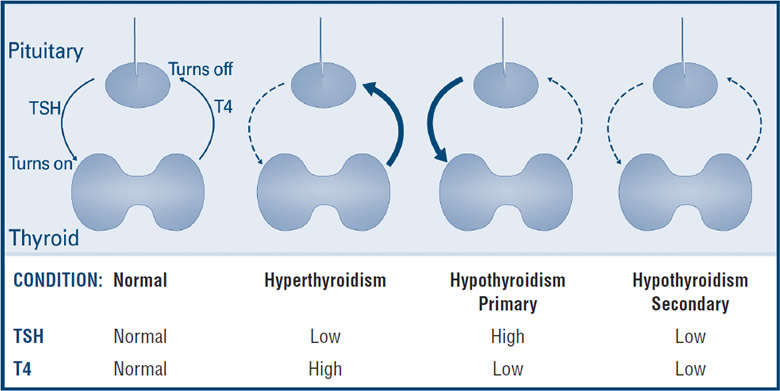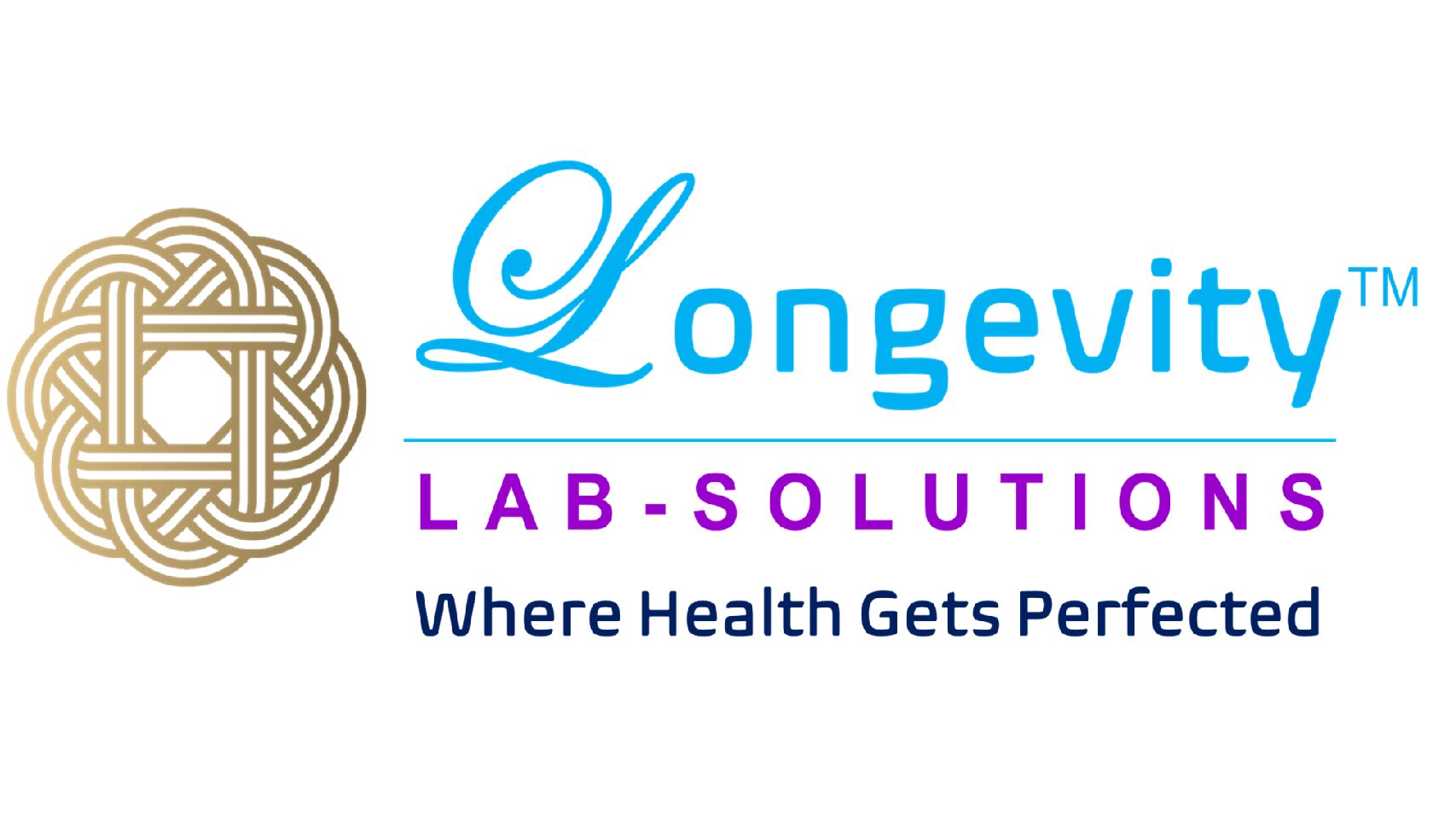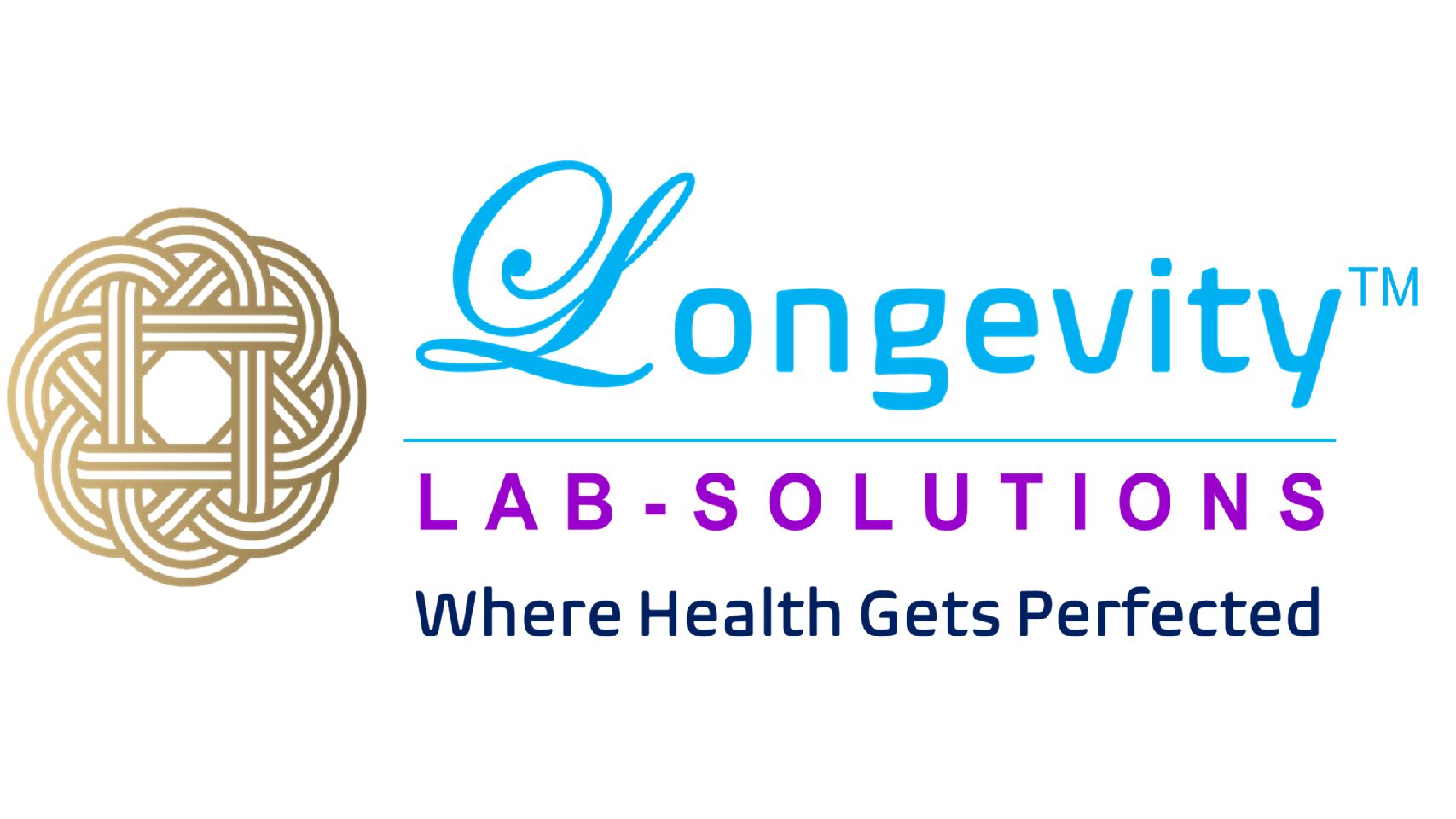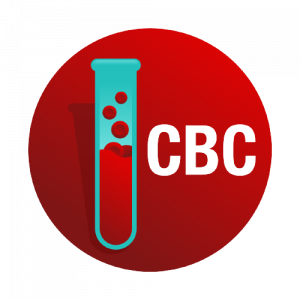Thyroid Health Blood Test
$149.00
The thyroid is a small, butterfly-shaped gland located in the neck and plays a crucial role in regulating various bodily functions through the production and release of thyroid hormones. Thyroid disorders can occur when the thyroid gland is overactive (hyperthyroidism), underactive (hypothyroidism), or when there are structural abnormalities or tumors present. These disorders can affect various body systems and cause symptoms such as fatigue, weight changes, mood changes, hair loss, temperature sensitivity, and menstrual irregularities.
Analytes in this test: 3 Total Analytes:- Thyroid Stimulating Hormone (TSH), Free Thyroxine (FT4), Triiodothyronine (T3).
Description
About the Test
The thyroid is a butterfly-shaped gland located in the neck, just below the Adam’s apple. It produces thyroid hormones, which are essential for regulating metabolism, growth, and development. The thyroid gland produces two main hormones: triiodothyronine (T3) and thyroxine (T4), which are released into the bloodstream and transported throughout the body. The production of thyroid hormones is regulated by the pituitary gland in the brain, which produces thyroid-stimulating hormone (TSH) in response to levels of thyroid hormones in the blood. Abnormalities in thyroid function can lead to a variety of health problems, including hypothyroidism (an underactive thyroid) and hyperthyroidism (an overactive thyroid). Thyroid function is typically evaluated using blood tests to measure levels of TSH, T3, and T4, along with other tests and clinical evaluation as needed. Treatment for thyroid disorders may include medication, surgery, or other interventions depending on the underlying cause and severity of the condition.
Overview Of Thyroid Gland
The thyroid is a butterfly-shaped gland located in the neck, just below the Adam’s apple. It produces thyroid hormones, which are essential for regulating metabolism, growth, and development. The thyroid gland produces two main hormones: triiodothyronine (T3) and thyroxine (T4), which are released into the bloodstream and transported throughout the body. The production of thyroid hormones is regulated by the pituitary gland in the brain, which produces thyroid-stimulating hormone (TSH) in response to levels of thyroid hormones in the blood. Abnormalities in thyroid function can lead to a variety of health problems, including hypothyroidism (an underactive thyroid) and hyperthyroidism (an overactive thyroid). Thyroid function is typically evaluated using blood tests to measure levels of TSH, T3, and T4, along with other tests and clinical evaluation as needed. Treatment for thyroid disorders may include medication, surgery, or other interventions depending on the underlying cause and severity of the condition.
Thyroid Health
Maintaining good thyroid health is important for overall health and well-being. Here are some tips to support thyroid health:
-
Eat a healthy, balanced diet: A diet rich in nutrients, including iodine and selenium, can support thyroid function. Good sources of iodine include seaweed, fish, and dairy products, while selenium-rich foods include Brazil nuts, fish, and meat.
-
Exercise regularly: Regular physical activity can help support overall health, including thyroid function.
-
Get enough rest: Adequate sleep and rest are important for overall health, and can help support healthy thyroid function.
-
Manage stress: Chronic stress can affect thyroid function, so finding ways to manage stress, such as through relaxation techniques or exercise, can be beneficial.
-
Avoid smoking and excessive alcohol consumption: Both smoking and excessive alcohol consumption can have negative effects on thyroid health.
-
Monitor your thyroid function: If you have risk factors for thyroid problems, such as a family history or certain medical conditions, talk to your healthcare provider about monitoring your thyroid function with blood tests.
It’s important to note that thyroid health is complex and influenced by many factors, so it’s important to work with a healthcare provider to develop a personalized plan for maintaining good thyroid health.
Analytes Tested In A Thyroid Health Blood Test
3 Analytes
- Thyroid Stimulating Hormone (TSH)
- Free T3 (Triiodothyronine)
- Free T4 (Thyroxine)
How Does The Thyroid Gland Function?
The major thyroid hormone secreted by the thyroid gland is thyroxine, also called T4 because it contains four iodine atoms. To exert its effects, T4 is converted to triiodothyronine (T3) by the removal of an iodine atom. This occurs mainly in the liver and in certain tissues where T3 acts, such as in the brain. The amount of T4 produced by the thyroid gland is controlled by another hormone, which is made in the pituitary gland located at the base of the brain, called thyroid stimulating hormone (abbreviated TSH). The amount of TSH that the pituitary sends into the bloodstream depends on the amount of T4 that the pituitary sees. If the pituitary sees very little T4, then it produces more TSH to tell the thyroid gland to produce more T4. Once the T4 in the bloodstream goes above a certain level, the pituitary’s production of TSH is shut off. In fact, the thyroid and pituitary act in many ways like a heater and a thermostat. When the heater is off and it becomes cold, the thermostat reads the temperature and turns on the heater. When the heat rises to an appropriate level, the thermostat senses this and turns off the heater. Thus, the thyroid and the pituitary, like a heater and thermostat, turn on and off. This is illustrated in the figure below.

T4 and T3 circulate almost entirely bound to specific transport proteins. If the levels of these transport proteins changes, there can be changes in how much bound T4 and T3 is measured. This frequently happens during pregnancy and with the use of birth control pills. The “free” T4 or T3 is the hormone that is unbound and able to enter and affect the body tissues.
Thyroid Stimulating Hormone (TSH)
TSH stands for thyroid-stimulating hormone, which is a hormone produced by the pituitary gland in the brain. TSH stimulates the thyroid gland, which is located in the neck, to produce thyroid hormones that help regulate metabolism and other bodily functions. A TSH blood test measures the level of TSH in the blood and is often used to diagnose and monitor thyroid problems, such as an underactive thyroid (hypothyroidism) or an overactive thyroid (hyperthyroidism). High levels of TSH usually indicate an underactive thyroid, while low levels of TSH usually indicate an overactive thyroid. However, interpreting TSH test results can be complex, and healthcare providers may use additional tests and clinical evaluation to make a diagnosis and determine appropriate treatment.
Free T3 (triiodothyronine)
Free T3 (triiodothyronine) is a thyroid hormone that is produced by the thyroid gland and plays a key role in regulating metabolism and other bodily functions. Unlike total T3, which measures the total amount of T3 in the blood (including both bound and unbound forms), free T3 measures only the unbound, or “free,” form of the hormone. Free T3 testing is often used along with other thyroid function tests, such as TSH and free T4, to help diagnose and monitor thyroid problems, such as hyperthyroidism (an overactive thyroid) or hypothyroidism (an underactive thyroid). High levels of free T3 may indicate hyperthyroidism, while low levels may indicate hypothyroidism. However, interpreting free T3 test results can be complex, and healthcare providers may use additional tests and clinical evaluation to make a diagnosis and determine appropriate treatment.
Free T4 (thyroxine)
Free T4 (thyroxine) is a thyroid hormone that is produced by the thyroid gland and plays a key role in regulating metabolism and other bodily functions. Unlike total T4, which measures the total amount of T4 in the blood (including both bound and unbound forms), free T4 measures only the unbound, or “free,” form of the hormone. Free T4 testing is often used along with other thyroid function tests, such as TSH and free T3, to help diagnose and monitor thyroid problems, such as hypothyroidism (an underactive thyroid) or hyperthyroidism (an overactive thyroid). High levels of free T4 may indicate hyperthyroidism, while low levels may indicate hypothyroidism.
T4 is the main form of thyroid hormone circulating in the blood. A Total T4 measures the bound and free hormone and can change when binding proteins differ. A Free T4 measures what is not bound and able to enter and affect the body tissues. Tests measuring free T4 more accurately reflect how the thyroid gland is functioning when checked with a TSH.
The finding of an elevated TSH and low FT4 indicates primary hypothyroidism due to disease in the thyroid gland. A low TSH and low FT4 indicates hypothyroidism due to a problem involving the pituitary gland. A low TSH with an elevated FT4 is found in individuals who have hyperthyroidism.
However, interpreting free T4 test results can be complex, and healthcare providers may use additional tests and clinical evaluation to make a diagnosis and determine appropriate treatment.
Thyroid Antibody Tests
The immune system of the body normally protects us from foreign invaders such as bacteria and viruses by destroying these invaders with substances called antibodies produced by blood cells known as lymphocytes. In many patients with hypothyroidism or hyperthyroidism, lymphocytes react against the thyroid (thyroid autoimmunity) and make antibodies against thyroid cell proteins. Two common antibodies are thyroid peroxidase antibody and thyroglobulin antibody. Measuring levels of thyroid antibodies may help diagnose the cause of the thyroid problem. For example, positive anti-thyroid peroxidase and/or anti-thyroglobulin antibodies in a patient with hypothyroidism result in a diagnosis of Hashimoto’s thyroiditis. While detecting antibodies is helpful in the initial diagnosis of hypothyroidism due to autoimmune thyroiditis, following their levels over time is not helpful in detecting the development of hypothyroidism or response to therapy. TSH and FT4 are what tell us about the actual thyroid function or levels.
A different antibody that may be positive in a patient with hyperthyroidism is the stimulatory TSH receptor antibody (TSI). This antibody causes the thyroid to be overactive in Graves’ Disease. If you have Graves’ disease, your doctor might also order a thyrotropin receptor antibody test (TSHR or TRAb), which detects both stimulating and blocking antibodies. Following antibody levels in Graves’ patients may help to assess response to treatment of hyperthyroidism, to determine when it is appropriate to discontinue antithyroid medication, and to assess the risk of passing antibodies to the fetus during pregnancy.
THYROGLOBULIN
Thyroglobulin (Tg) is a protein produced by normal thyroid cells and thyroid cancer cells. It is not a measure of thyroid function and it does not diagnose thyroid cancer when the thyroid gland is still present. It is used most often in patients who have had surgery for thyroid cancer in order to monitor them after treatment. Tg is included in this brochure of thyroid function tests to communicate that, although measured frequently in certain scenarios and individuals, Tg is not a primary measure of thyroid hormone function.
What Is A TSH Test?
TSH stands for thyroid stimulating hormone. A TSH test is a blood test that measures this hormone. TSH levels that are too high or too low may be a sign of a thyroid problem.
The thyroid is a small, butterfly-shaped gland in the front of your neck. Your thyroid makes hormones that control how your body uses energy. Thyroid hormones affect nearly every organ in your body, including your heart. They help control your weight, body temperature, muscle strength, and even your mood. If you don’t have enough thyroid hormones in your blood, many of your body functions slow down. If you have too much, many body functions speed up.
Your thyroid is controlled by a gland in your brain, called the pituitary gland. The pituitary gland makes thyroid stimulating hormone (TSH). TSH tells your thyroid how much thyroid hormone it needs to make.
If the thyroid hormone levels in your blood are too low, your pituitary gland makes larger amounts of TSH to tell your thyroid to work harder. If your thyroid hormone levels are too high, the pituitary gland makes little or no TSH. By measuring TSH levels in your blood, you can find out if your thyroid is making the right level of hormones.
What Is It Used For?
A TSH test is used to find out how well your thyroid is working. It can tell if you have hyperthyroidism (too much thyroid hormone) or hypothyroidism (too little thyroid hormone) in your blood. But a TSH test can’t show what is causing a thyroid problem.
If you take prescription thyroid hormone medicine because of hypothyroidism or because you had your thyroid removed, you’ll have regular TSH tests to check your thyroid hormone levels. TSH tests are also used to monitor your thyroid hormone levels after treatment for hyperthyroidism.
Why Do I Need A TSH Test?
You may need a TSH test if you have symptoms of too much or too little thyroid hormone in your blood.
Hyperthyroidism (too much thyroid hormone) is also called overactive thyroid. Having more thyroid hormones than you need speeds up your body functions and causes symptoms that include:
- Weight loss, even though you may be eating more than usual
- Rapid or irregular heartbeat
- Feeling nervous or irritable
- Trouble sleeping, fatigue
- Shaky hands, muscle weakness
- Sweating or being very sensitive to heat
- Frequent bowel movements (pooping a lot)
- Goiter (enlarged thyroid)
Hypothyroidism (too little thyroid hormone) is also called underactive thyroid. Not having enough thyroid hormone slows down your body functions and causes symptoms that include:
- Fatigue
- Weight gain
- Being very sensitive to cold
- Joint and muscle pain
- Dry skin
- Dry, thinning hair
- Heavy or irregular menstrual periods
- Depression
- Constipation
You may also have a TSH test, along with other tests, to help diagnose unusual bumps or lumps on your thyroid that may be thyroid cancer or thyroid nodules (growths on your thyroid that aren’t cancer).
What Happens During A TSH Test?
A health care professional will take a blood sample from a vein in your arm, using a small needle. After the needle is inserted, a small amount of blood will be collected into a test tube or vial. You may feel a little sting when the needle goes in or out. This usually takes less than five minutes.
Will I Need To Do Anything To Prepare For The Test?
You don’t need any special preparations for a TSH blood test. If your health care provider has ordered other blood tests, you may need to fast (not eat or drink) for several hours before the test. Your provider will let you know if there are any special instructions to follow.
Are There Any Risks To The Test?
There is very little risk to having a blood test. You may have slight pain or bruising at the spot where the needle was put in, but most symptoms go away quickly.
What Do The Results Mean?
Your TSH test results can tell you if your thyroid is making too much or too little thyroid. But the test can’t explain why your TSH levels may be too high or too low.
If your test results aren’t normal, your provider will probably order other thyroid blood tests to find out what’s causing your thyroid problem. These blood tests may include:
- T4 thyroid hormone test
- T3 thyroid hormone test
- Thyroid antibodies test to help diagnose an autoimmune thyroid disorder, such as:
- Graves’ disease, the most common cause of hyperthyroidism
- Hashimoto’s disease, that the most common cause of hypothyroidism
In certain cases, an abnormal TSH result may be a sign of a pituitary gland problem, but this doesn’t happen often.
Is There Anything Else I Need To Know About A TSH Test?
TSH levels may be high or low even when your thyroid gland is healthy. Serious illnesses not related to your thyroid may cause lower TSH levels for a short time. And TSH levels may be higher in people over age 80, even though they don’t have any thyroid problems.
Pregnancy also affects TSH levels. They are often a little low during the first three months. But sometimes, thyroid disease develops during pregnancy. If you develop thyroid disease during pregnancy, your provider will monitor your condition through your pregnancy and after your baby is born. That’s because hyperthyroidism, and less often, hypothyroidism, can continue after you give birth. If you have a history of thyroid disease, be sure to talk with your provider if you are pregnant or are thinking of becoming pregnant.
Newborn babies are routinely screened with a TSH test to see if they were born with hypothyroidism (congenital hypothyroidism).
Specimen Requirements
SST tube of blood, serum
Turn Around Time
24 – 48 hours
Price For Test
Price: $149







